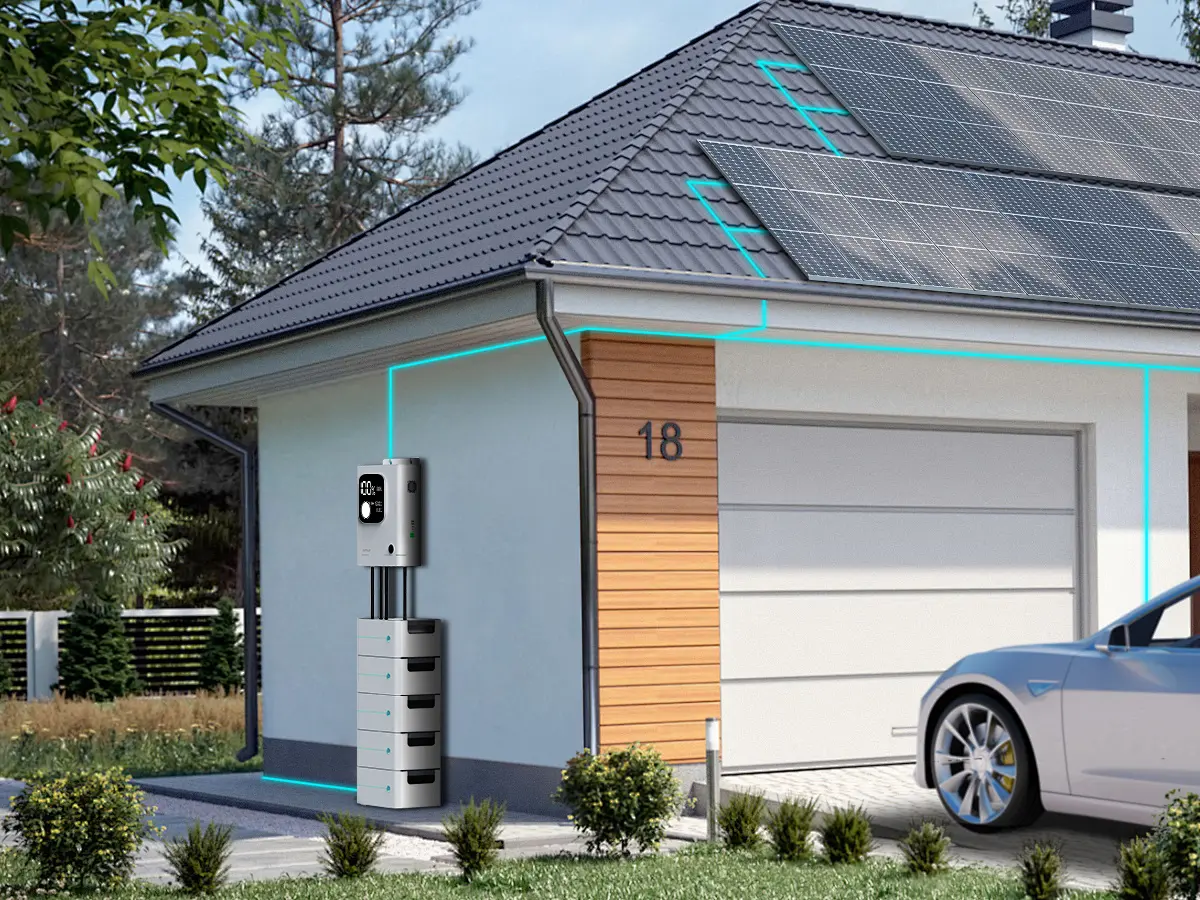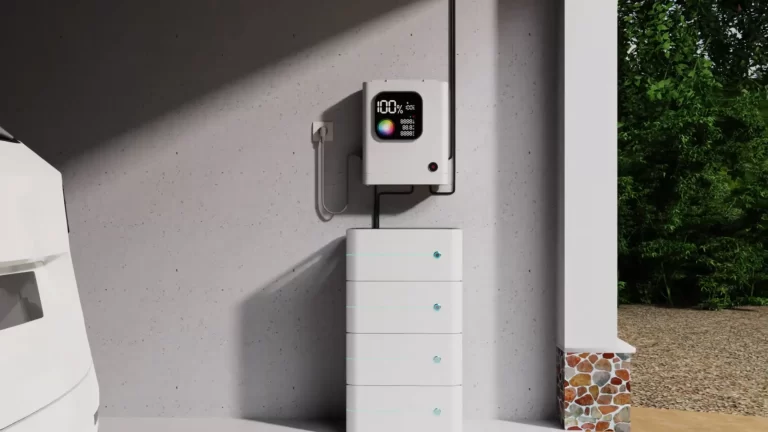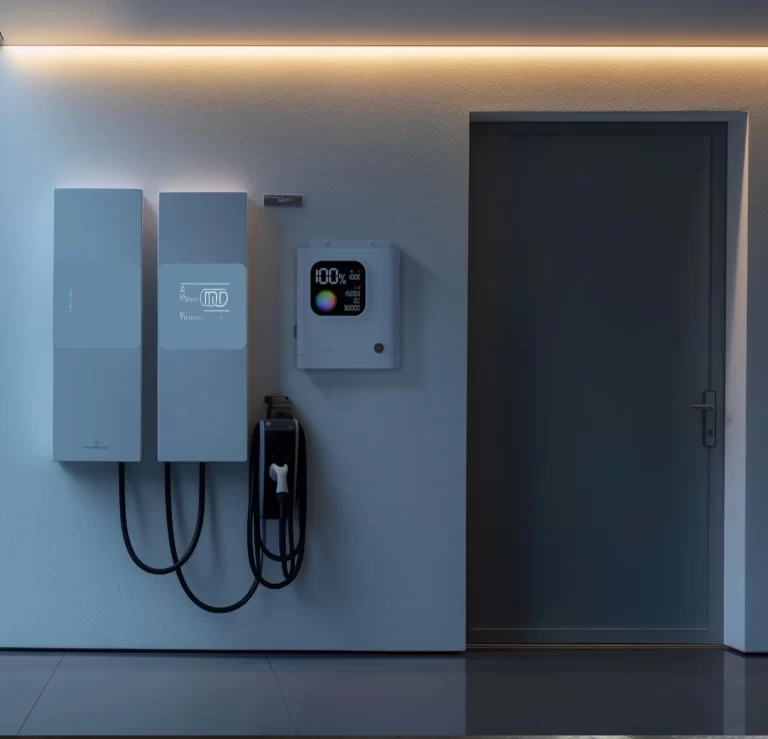With the gradual popularity of electric vehicles, charging issues have become the focus of many car owners. The emergence of home energy storage systems provides a convenient and flexible solution for charging electric vehicles.

1. Working principle of home energy storage system
Home energy storage systems usually consist of battery banks, inverters, chargers and control systems. It can be charged through solar panels, wind turbines or mains power, and the stored electrical energy can be supplied to electric vehicles.
During the charging process, the home energy storage system first converts external energy into direct current, and then converts the direct current into alternating current through an inverter to meet the charging needs of electric vehicles. At the same time, the control system will intelligently adjust the charging power and time based on the battery’s power and charging needs to ensure the safety and efficiency of the charging process.
2. Advantages of home energy storage systems for charging electric vehicles
Independence and autonomy: With a home energy storage system, car owners can charge their electric vehicles at their own home at any time without relying on public charging facilities, reducing dependence on external charging networks.
Cost savings: Using home energy storage systems to charge can avoid high electricity bills during peak hours and reduce charging costs. In addition, charging through renewable energy sources such as solar energy can further reduce energy bills.
Flexibility and convenience: The installation location of the home energy storage system is flexible and can be installed in the home garage, courtyard or other suitable places according to actual needs, making it convenient for car owners to charge at any time.
Environmentally friendly and sustainable: Combined with renewable energy charging, home energy storage systems help reduce dependence on traditional fossil energy, reduce carbon emissions, and are more environmentally friendly.
Backup power supply: In addition to charging electric vehicles, home energy storage systems can also provide backup power to households during power outages to ensure basic living needs.
3. Application scenarios of home energy storage systems
Independent residence: For users with independent residences, installing a home energy storage system can achieve self-sufficient electric vehicle charging while meeting the daily electricity needs of the family.
Urban residents: Urban residents can install home energy storage systems in their own parking spaces or garages to conveniently charge electric vehicles and avoid the trouble of finding public charging piles.
Villa area: In the villa area, multiple residents can jointly build and share home energy storage systems to improve the overall charging convenience and economy.
Rural areas: Residents in rural areas can use renewable energy such as solar energy to charge home energy storage systems, providing green charging solutions for electric vehicles.
Home energy storage systems provide a convenient, efficient and sustainable solution for charging electric vehicles. It not only solves the problem of insufficient charging facilities, but also brings economic and environmental benefits to users. With the continuous development of technology and policy support, home energy storage systems will play an increasingly important role in the future of electric vehicle charging. Let us look forward to a greener and more convenient electric travel future together.




